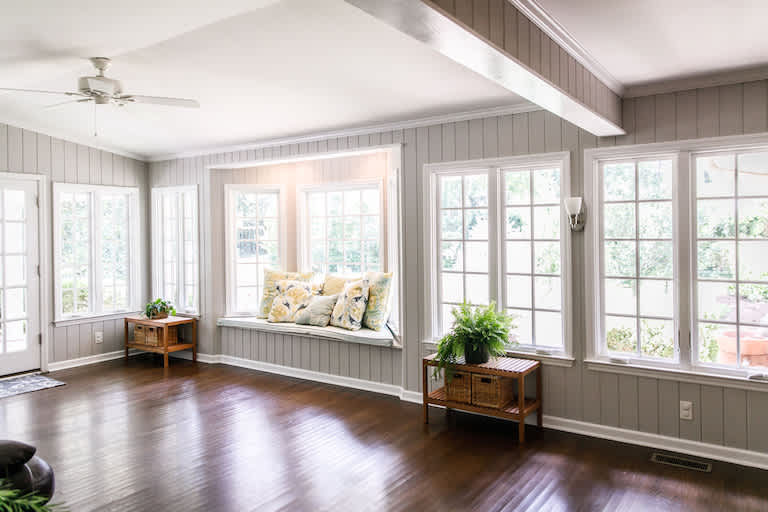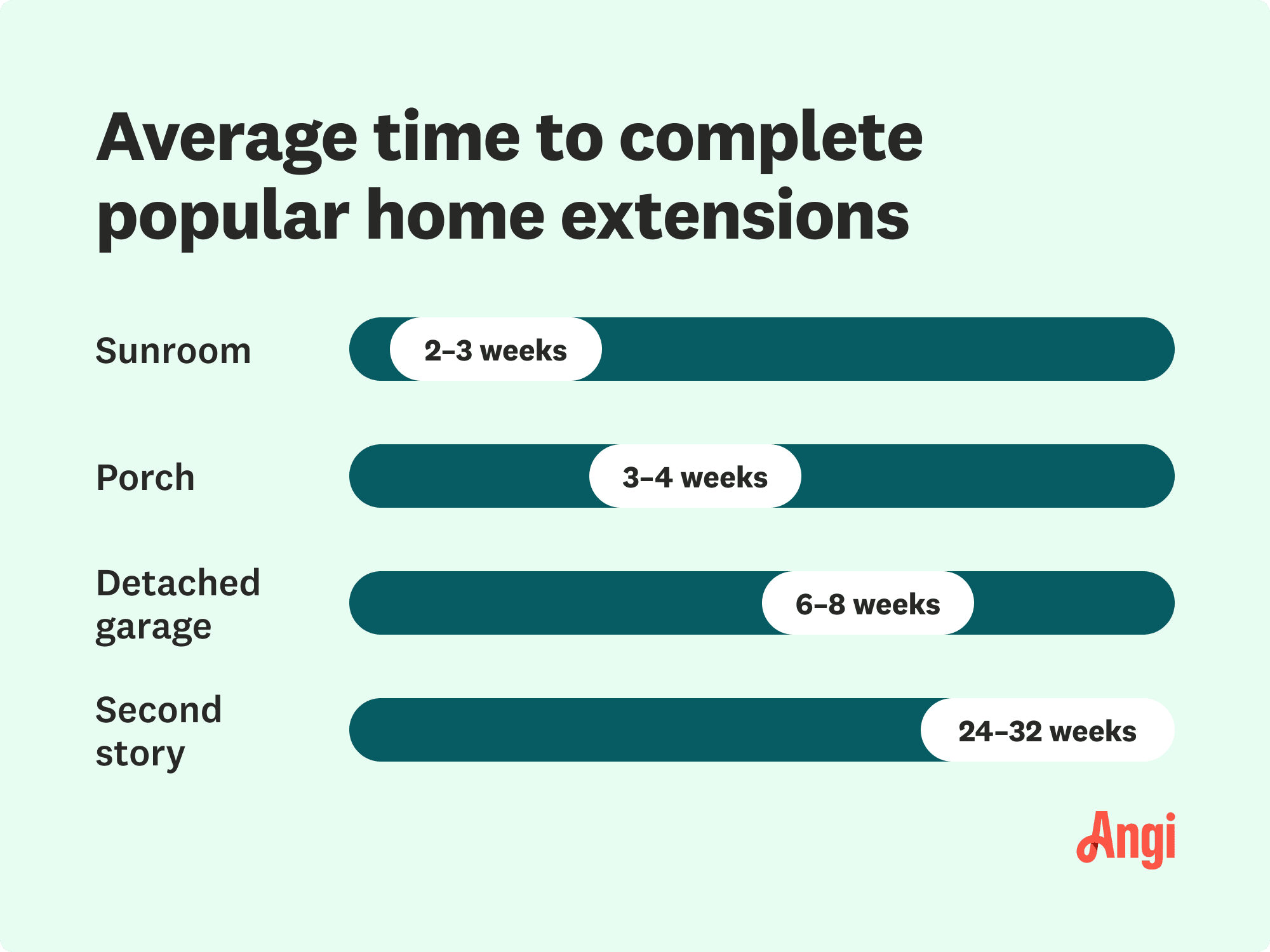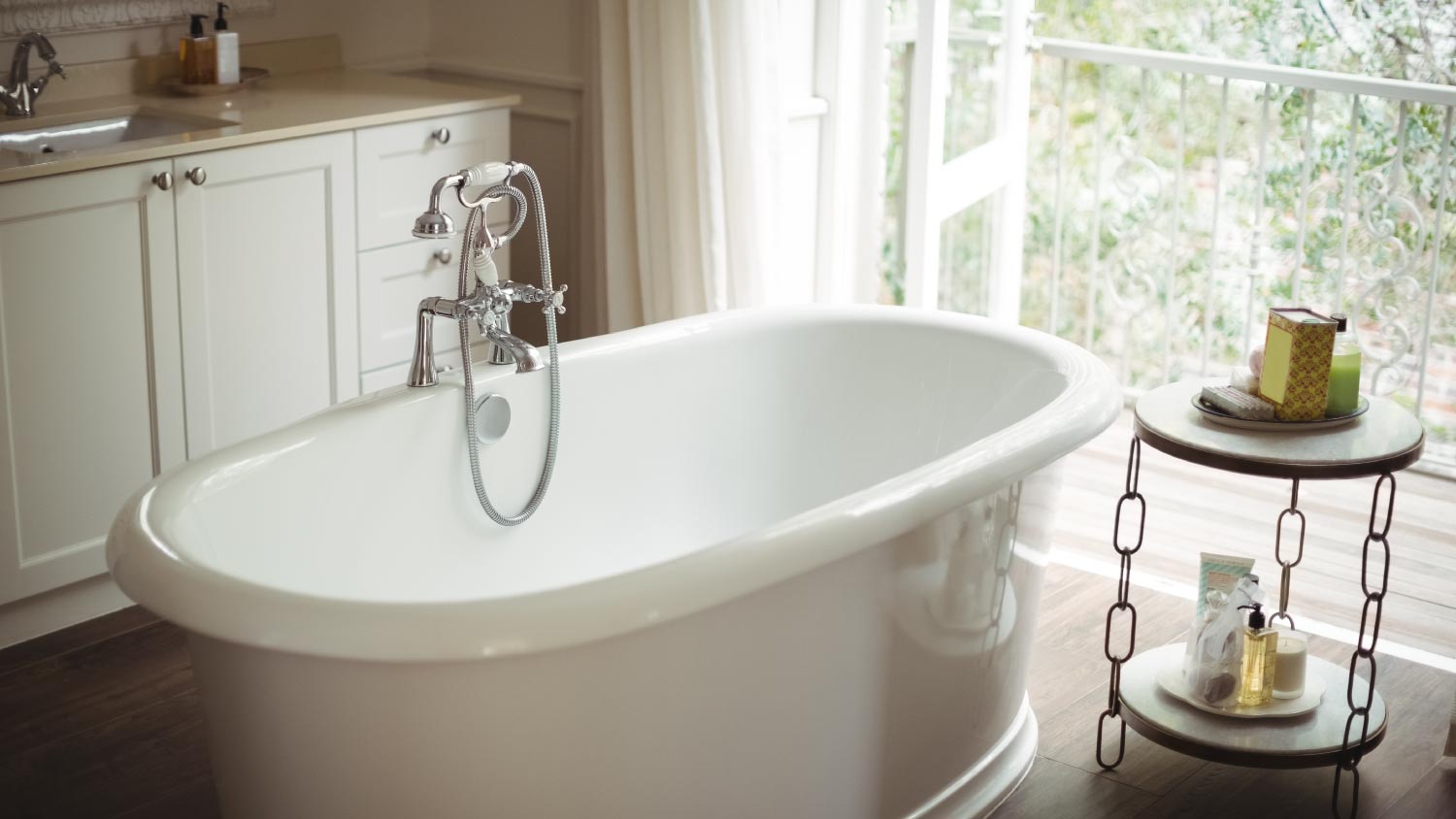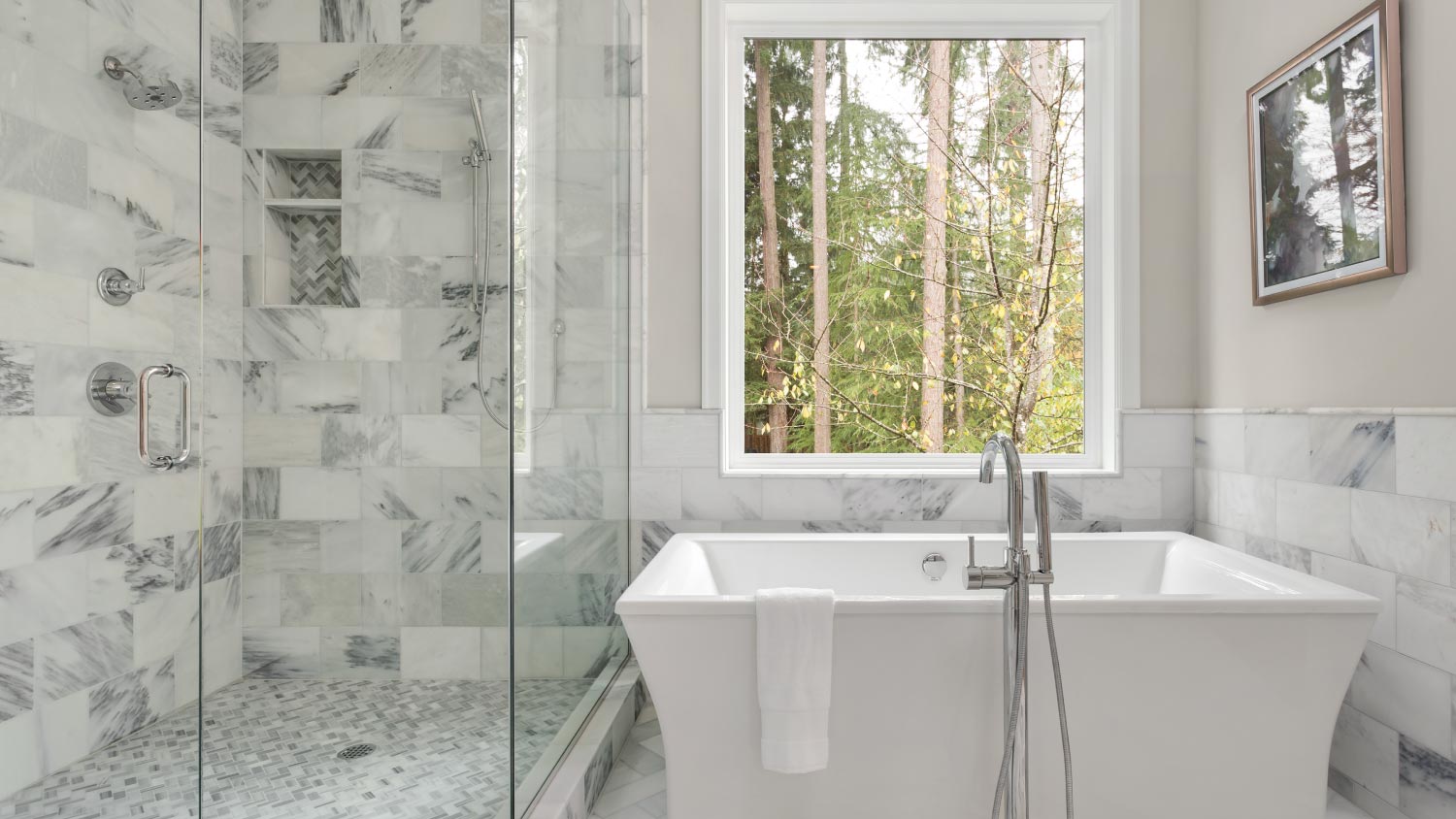
If your bathroom vanity top is damaged or cracked, removing and installing a new one can be an easy project to tackle. Learn the cost of replacing your vanity top.
A home addition costs an average of $52,046 in Denver, Colorado. Depending on the location, size, type, and materials, most homeowners spend between $21,594 and $83,095.


The type of home addition you build and the square footage you want to add will primarily determine your total build costs.
The average property size in Denver is just 0.131 acres, which prompts many homeowners to build out instead of up, despite higher costs.
A home addition adds an average of between 1.7% and 4.2% to your property value, which is slightly below the national average.
When choosing exterior building materials, make sure they can withstand above-average snowfall and insulate your home well to lower heating costs.
Building a home addition in Denver costs an average of $52,046, and most residents pay somewhere between $21,594 and $83,095. Your costs will depend mostly on the type of home addition you build and its size. Adding a second story always costs more than building a bump-out or extension on your home, and with below-average lot sizes, Denver residents very often have to spend more on building up.
Building a home addition in Denver, Colorado, can cost as little as $6,000, but prices for certain projects in the city can climb to $180,000. The square footage you’re adding and the type of home addition play major roles in your total, but local building permits, material choices, and necessary site preparation can all affect your costs, too.
Home additions cost between $80 and $200 per square foot if you’re building out and between $300 and $500 per square foot if you’re building up. The cost to add a 10x10 room to a home in Denver costs an average of about $14,000 if you build out and around $40,000 if you build up. You can get a rough estimate for your total by deciding whether you’re going to build out or up and then determining how many square feet of living space you’re looking to add.
Remember that if you add square footage to your home, the cost of your homeowners insurance will increase accordingly. Before you embark on this project, speak to your insurance company about expected costs.
The average property size in Denver is just 0.131 acres, which is just under 5,700 square feet, and the average home is 2,000 square feet. This leaves minimal room to build out, especially since Denver has setback laws that prevent you from building too close to your property lines. More often, residents will build up, which drives up the average cost of home additions in the city.
| Size (Sq. Ft.) | Building Out | Building Up |
|---|---|---|
| 60 | $4,850-$12,250 | $18,350-$30,600 |
| 80 | $6,500-$16,350 | $24,450-$40,800 |
| 100 | $8,150-$20,400 | $30,600-$51,000 |
| 150 | $12,200-$30,600 | $45,900-$76,500 |
| 200 | $16,300-$40,800 | $61,200-$102,000 |
| 300 | $24,450-$61,200 | $91,800-$153,000 |
| 400 | $32,600-$81,600 | $122,400-$204,000 |
It’s not all about square footage, though. Where in those ranges your total falls also depends on the complexity of the room and its finishes. For example, adding a bathroom will often cost more than a bedroom since it requires additional plumbing and electrical work.
As you can imagine, it takes many kinds of building materials to complete a custom home addition. Material prices vary widely, so your price could push closer to $83,095 if you choose luxury or high-end materials at each step of the way.
Interior materials are up to personal taste, but when you choose exterior materials, you need to consider the local weather and climate. For example, it’s worth installing highly insulative building materials that will help reduce heating costs in the long, cold winters and roofing that can withstand above-average snowfall. The tables below include some pricing for common exterior materials and options to give you a sense of how material choice affects your total.
Foundation Materials Cost:
| Foundation Material | Cost per Sq. Ft. | Pros | Cons |
|---|---|---|---|
| Basement | $20–$37 | Avoids frozen pipes | Most expensive |
| Crawl space | $6–$18 | Avoids frozen pipes | No living space |
| Slab | $5–$16 | Most affordable | No underhome space |
Insulation Materials Cost:
| Insulation Material | Cost per Sq. Ft. | Pros | Cons |
|---|---|---|---|
| Blown-in | $0.60–$2.30 | Lower heating bills | Most expensive |
| Fiberglass batts | $0.30–$0.40 | Easy to install | Energy efficiency |
| Rigid foam | $0.25–$0.50 | Value | Hard to install |
Roofing Materials Cost:
| Roofing Material | Cost per Sq. Ft. | Pros | Cons |
|---|---|---|---|
| Asphalt shingles | $1–$4 | Most affordable | Prone to leaks |
| Metal | $4–$16 | Sheds snow quickly | More expensive |
Siding Materials Cost:
| Siding Material | Cost per Sq. Ft. | Pros | Cons |
|---|---|---|---|
| Brick | $10–$20 | Adds insulation | Expensive |
| Fiber cement | $5–$14 | Overall value | Heavy material |
| Stone | $7–$30 | Best curb appeal | Very expensive |
| Vinyl | $3–$12 | Most affordable | Energy efficiency |
Window Frame Materials Cost:
| Window Frame Material | Cost | Pros | Cons |
|---|---|---|---|
| Aluminum | $75–$400 each | Most affordable | Minimal insulation |
| Composite | $300–$1,200 each | Good insulation | Costly |
| Fiberglass | $500–$1,500 each | Best insulation | Most expensive |
| Vinyl | $100–$900 each | Best value | Can warp in cold |
| Wood | $150–$1,300 each | Traditional look | Can rot from snow |

The cost to add on a room varies based on the type of home addition and the size of the room you’re building. The type of home addition determines whether you build out or up, and it can also affect what materials you need and what, if any, structural changes you need to make to your home.
| Addition Type | Average Cost |
|---|---|
| Bumpout | $10,200–$43,900 |
| Detached garage | $19,600–$34,300 |
| Dormer | $6,100–$25,500 |
| In-law suite | $25,500–$270,300 |
| Second-story | $102,000–$255,000 |
| Sunroom | $22,400–$76,500 |
Rooms like kitchens and bathrooms require plumbing work that a bedroom doesn’t, while an unfinished attic home addition may not require electrical or HVAC work that a bedroom needs. The cost per square foot for your home addition will vary based on utilities and the finishes required for how you plan on using the extra square footage.
On average, site prep for a home addition costs between $1,500 and $5,000. You may not need any site prep in some cases, while other home addition projects may require grading land, demolishing concrete patios, removing trees, and other work that can add to your total.
The smaller property sizes in Denver mean that many homeowners will need to build up rather than out, which means site prep will normally be minimal. However, the added cost of building a second-story addition will more than make up for the “savings” on site prep.
All major construction work in Denver will require permits, so it’s a good idea to budget for permit fees to get the most accurate estimate possible. The City of Denver charges permit fees based on your project cost. Local permit fees will be $420 for the first $50,000 worth of work, plus $7 for each additional $1,000 worth of work. Given the average cost of a home addition in the area, your permit fee total will be $441.
Hiring a professional homebuilder in Denver to plan and construct your addition will come with some serious labor costs. Labor accounts for between 40% and 60% of your total, which means between $20,800 and $31,300 in Denver, CO. This is higher than you’d pay in most cities, in part because the local cost of living is higher than the national average, and the cost of living drives hourly labor costs.
It’s also a good idea to factor in sales tax, which your pro will add onto your total. The local tax rate in Denver is 9.15%, which is above the national average, so again, you’ll be paying more in taxes than most homeowners in the country would. Given the average project cost in the city, you can expect to pay an average of $4,762.21 in taxes.
A home addition will increase your home value because it adds square footage, which is one of the most valuable things you can do for your property. The average return on investment (ROI) for a home addition is between 20% and 50%, so you can expect your project to add between $10,400 and $26,100 to your home. With the average property value of $625,000, that means a home addition will add between 1.7% and 4.2% to your home value.
You can maximize your ROI by choosing energy-efficient materials that will help insulate your addition through the long, cold winters in Denver and stand up to the above-average snowfall. The city as a whole commonly ranks among those that prioritize sustainability, so opting for more eco-friendly materials can have a positive impact on value add, too.
Home is the most important place on earth, which is why Angi has helped more than 150 million homeowners transform their houses into homes they adore. To help homeowners with their next project, Angi provides readers with the most accurate cost data and upholds strict editorial standards. We survey real Angi customers about their project costs to develop the pricing data you see, so you can make the best decisions for you and your home. We pair this data with research from reputable sources, including the U.S. Bureau of Labor Statistics, academic journals, market studies, and interviews with industry experts—all to ensure our prices reflect real-world projects.
Want to help us improve our cost data? Send us a recent project quote to [email protected]. Quotes and personal information will not be shared publicly.
From average costs to expert advice, get all the answers you need to get your job done.

If your bathroom vanity top is damaged or cracked, removing and installing a new one can be an easy project to tackle. Learn the cost of replacing your vanity top.

A bump-out addition is right for you if you want to add extra space to your home without adding a new room. Learn about the different bump-out addition costs.

Remodeling your bathroom can add significant value to your home. Your bathroom remodel cost in Columbus, OH will depend on size, fixtures, materials, labor, and other factors.

An updated bathtub can give a bathroom a whole new look. Find out how much it costs to replace a bathtub in Los Angeles, CA, including prices by type and labor costs.

An updated bathtub can give a bathroom a whole new look. Find out how much it costs to replace a bathtub in Atlanta, GA, including prices by type and labor costs.

This prep and staging area has numerous uses in the versatile modern home. Here’s what a butler’s pantry does and how you can add one to your home.